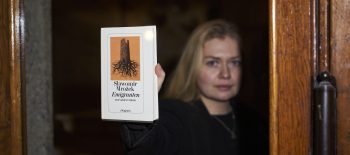Many of his soldiers listened to their commander and did not lay down arms when World War II ended. They continued their fight for a truly free homeland.
In 1945, Poland found itself in a difficult situation. The agreements made at the Tehran, Yalta and Potsdam conferences led to a de facto division of Europe into spheres of influence. Post-1944 Polish governments were not chosen in free elections and were dependent on the Soviet Union. The 1947 parliamentary elections, held as a result of the arrangements made at the Yalta Conference, were rigged with the help of the Soviet political police, the NKVD.
Soldiers of the pro-independent underground decided to put up armed resistance against the new authorities. Today, they are called “cursed soldiers,” because they had been considered criminals until Poland regained its full sovereignty in 1989 and were covertly persecuted during the Stalinist era. The anti-communist underground created its first structures in 1943, but the most intense armed resistance against forcibly imposed authorities occurred in 1945. Close to 200,000 people are estimated to have been part of the different underground formations in the years that followed. Members of the underground did not agree to a foreign power imposing its will on the Polish nation. They wanted to bring about the implementation of the Yalta agreements concerning the organisation of genuinely free and democratic elections in Poland.
Not all “cursed soldiers” died fighting. Many were thrown into prisons, where they were tortured and murdered. Punishment was applied without respect for democratic norms. Some were convicted on fake charges of collaboration with the Germans, even if they actively fought the Nazi occupier as members of the underground state organisation during World War II.
Most soldiers of the anti-communist underground came out of hiding in February 1947. Many of them had to live under false names until the end of the Polish People’s Republic. The last “Cursed Soldier” Józef Franczak aka „Laluś“ was shot during a raid in the autumn of 1963.
While Poland’s communist regime consistently sought to erase the anti-communist underground from the nation’s collective memory, Poles did not forget about the “cursed soldiers.” The term was coined in the 1990s, when it was finally possible to openly discuss them and to conduct research. Since 2011, on the anniversary of the death of seven members of the last General Board of the „Freedom and Independence“ Association, executed in the Mokotow prison, we have been commemorating the National Remembrance Day of the „Cursed Soldiers.“ Today, their lives are stories of steadfast desire for freedom and the ultimate price human beings may have to pay for it.



